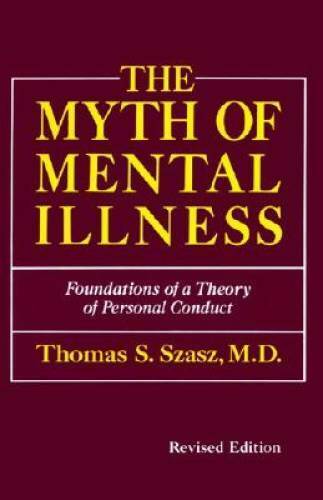About the lack of empirical evidence for so-called organic nature of “mental disease,” Tucker Carlson said TODAY, , (well, almost) what this column wrote first in 2002 and countless times since, in titles archived under Psychiatry and The Therapeutic State category:
“Cruise And The Psychiatric Shamans,” (2005) “EVIL, NOT ILL” (4/2007), “Conservatives For Abolishing The Fact Of Evil (2015),” “School Shootings: A Moral-Health, Not Mental-Health, Problem” (2018).
Tucker discovers what we wrote in “Broken Brains?” (January 16, 2002):
“… Consider also that there is no credible, scientific, peer-reviewed evidence for the organic basis of aberrant behavior, and you grasp the chicanery that surrounds the claim that strange or bad conduct is caused by ‘chemical imbalances’ in the brain. …”
The more rigorous and honest clinicians will concede that drawing causal relationships between “mental illness” and “chemical imbalances” is impossible. That prescription medication often helps misbehaved or unhappy individuals is no proof that strange behavior is an organic disease. One can chemically castrate a pedophile. But does this demonstrate that molesting kids is an organic disease? Never. It proves only that chemical castration can at times reduce recidivism in people who have chosen to victimize children.
Roughly 75 percent of the value of “antidepressant” drugs is due to the placebo effect. And talk therapies—cognitive-behavioral therapy in particular—can have equal or better results. Veracity permits only that we limit our causal conclusions to saying that assorted treatment modalities sometimes help people with behavioral problems, nothing more.
My mentor, the great Dr. Thomas Szasz, wrote and proved all this analytically in the Myth of Mental illness, 1961. His books I studied at university, back when thought was taught. Both Tom Szasz and I lauded Tom Cruise when the actor attacked psychiatry so very cogently.
See “Cruise And The Psychiatric Shamans” (2005):
The psychiatric peanut gallery has blasted actor Tom Cruise for insisting correctly that there’s more voodoo to the profession than veracity. Cruise’s instincts are good: “Psychiatrists don’t have a test that can prove that a so-called mental illness is actually organic in origin, I wrote. Rigorous clinician —members of the Society for a Science of Clinical Psychology come to mind —concede that drawing causal connections between “mental illness” and “chemical imbalances” is impossible. That prescription medication often helps misbehaved or unhappy individuals is no proof that strange behavior is an organic disease —placebos or cognitive-behavioral therapy, for example, are as effective.
Tucker Carlson had summoned some limey, a quick-fix popularizer, to speak to these issues.



 print
print
As a doctoral candidate in psychology in the early 1970’s I found Dr. Szasz’s work actually refreshing and stimulating. Over the ensuing years I have often witnessed not only the professions need of but a societal dependency on the “placebo effect”. What I was unprepared for was the vehemence involved in defense of the irrationality in the theory and practice of identifying, naming, categorizing and supposedly treating aberrant behaviors. But what became alarming was that recent graduates of medical and graduate psychology schools had no frame of reference to ask those types of questions. And raising them brought anger and fear.
Recommended:
Gary Greenberg, “The Book of Woe: The DSM and the Unmaking of Psychiatry”
John Alexander Wieriman, “Counseling: A Profession or a Trade?”